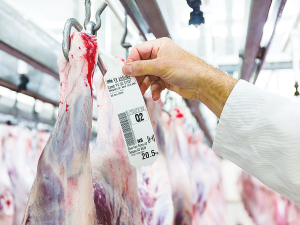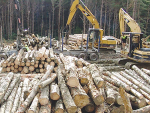Export lamb and beef prices reached new highs in the September 2019 quarter, while forestry products fell sharply.
Both lamb and beef prices are at their highest-ever levels. In the September 2019 quarter, meat prices rose 4.8%, surpassing last quarter’s high, driven by higher prices for lamb (up 6.0%), and beef (up 5.4%).
Dairy product prices rose 8.9%, with milk powder up 9.6%, butter up 7.3%, and cheese up 6.2%.
Forestry product prices fell 9.7% in the September 2019 quarter, following a 1.9% fall last quarter. Forestry product volumes fell 5.5% and values fell 12%.
Seasonally adjusted export meat volumes were up 1.4% and values were up 8.0% in the September 2019 quarter. Lamb volumes fell 0.7% while values rose 7.9%. Beef volumes rose 2.9% and values were up 7.4%.
In total, export prices rose 1.9% in the September 2019 quarter to their highest in over 10 years, while import prices remained flat. The overall terms of trade remained at high levels, close to peaks seen in late 2017, when export prices for dairy and meat were also high.
Terms of trade is a measure of the purchasing power of New Zealand’s exports abroad and is an indicator of the state of the overall economy.
“Lamb and beef prices rose this year at the same time as international demand for meat increased,” says Stats NZ business price manager Bryan Downes.
“The higher demand for meat was largely due to the African swine fever outbreak in China, resulting in reduced pork supplies being substituted with alternatives.
“New Zealand consumers are also seeing higher meat prices – bacon and ham prices rose more than 20% for the year to October 2019,” says Downes.











